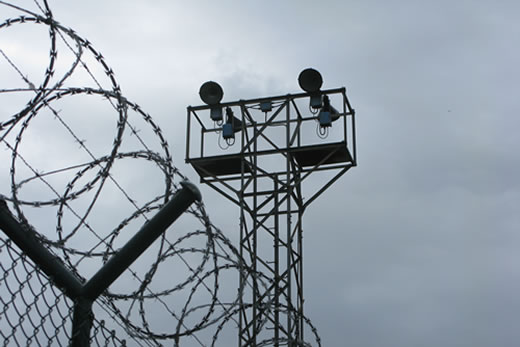According to a recent study by Anne Spaulding, MD, MPH, associate professor of Epidemiology at the Rollins School of Public Health, human immunodeficiency virus (HIV) testing in jails provides an opportunity to reach individuals outside the scope of traditional screening programs.
Spaulding and team performed a preliminary evaluation in 2010 to estimate underlying HIV prevalence and determine how many individuals [entering a jail] were unaware of their infection—they estimated at least 2 percent were infected and an additional 1 percent of jail entrants may be infected but unaware. They trained nurses to offer rapid HIV testing to jail entrants at the Fulton County Jail in Atlanta, Georgia. In January 2011, entrants were offered HIV testing via rapid oral swab, which in March 2013, were replaced with more accurate finger stick tests. Detainees identified as HIV positive were assisted with linkage to HIV care post release.
The project found that between March 2013 and February 2014, 89 new confirmed positives were identified through testing. A total of 458 previously and newly identified individuals were linked to HIV care. The nurse initiation aspect of the screening proved to be a major factor in key results. Following the success of the Fulton County Jail program, the jail in neighboring DeKalb County, Georgia, signed a Memorandum of Agreement to replicate the program in their facility, using test kits donated by the Georgia Department of Public Health.
"Studies in hospitals and clinics of nurse-initiated screenings show that patients participate in testing at higher rates than in setting with physician-initiated testing," explains Spaulding. "This testing program substantially decreased the number of people who are HIV-infected but unaware of their status and that’s largely because of the nurse-led initiative. A jail is a venue where nurses have more autonomy than in community hospitals and clinics."
The Centers for Disease Control and Prevention recommends voluntary HIV screening in all medical venues, including correctional facilities. Spaulding and team suggest that adhering to these recommendations may help identify a substantial portion of the 14.3 percent of Americans unaware that they are infected with HIV. The research team also believes that this model of nurse-led, opt-out, rapid HIV testing upon entering a local jail is replicable in other regions of the country impacted by high incarceration.
Complete findings are available in the online version of the Journal of Public Health Management and Practice:http://journals.lww.com/jphmp/Abstract/publishahead/Establishing_an_HIV_Screening_Program_Led_by_Staff.99800.aspx

